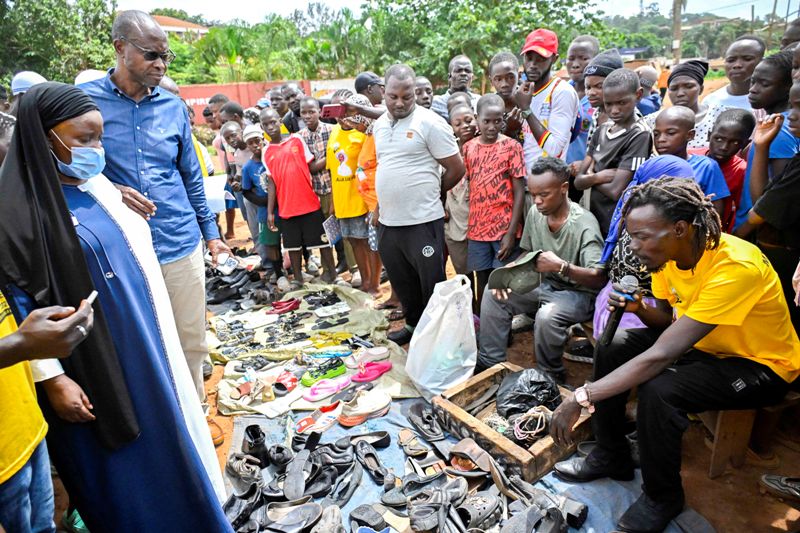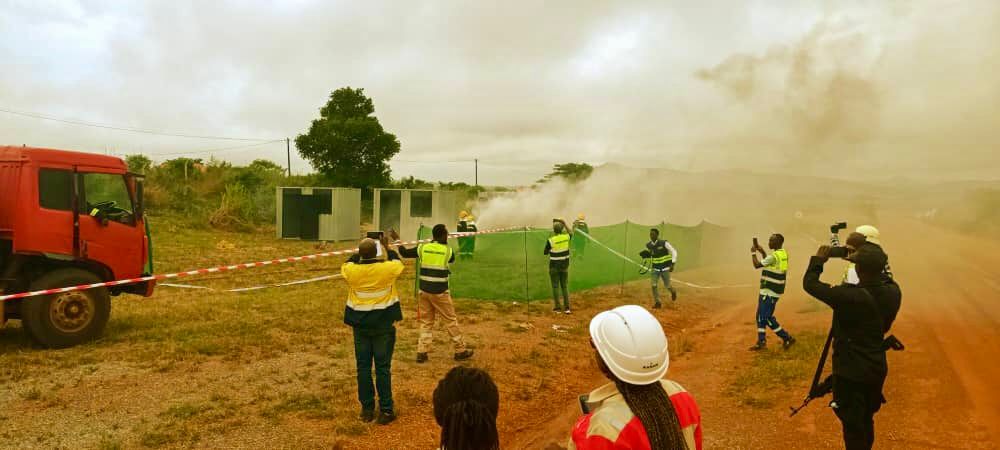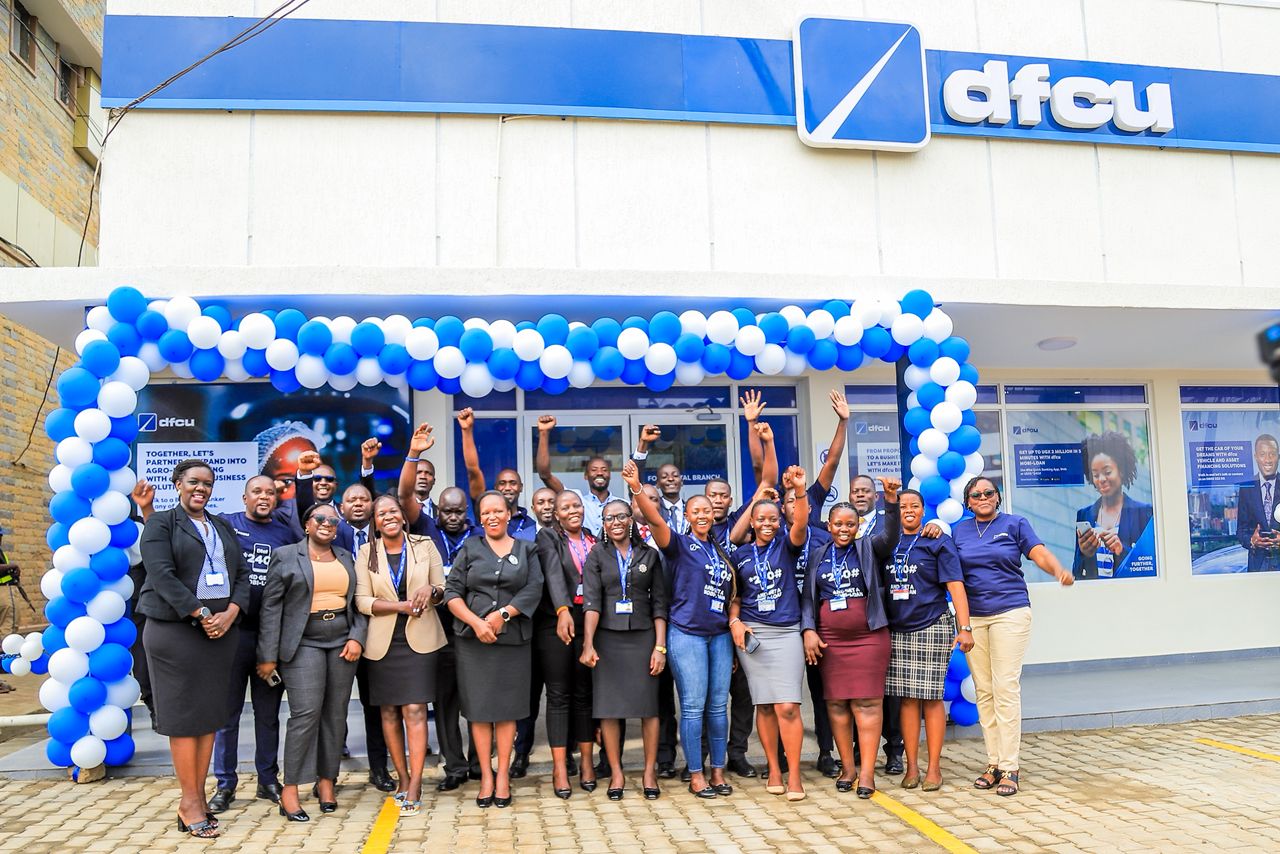Kampala ghetto community traders receive Museveni financial empowerment
Despite the various support efforts for street vendors, Hajjat Nsereko expressed concerns that KCCA continues to mistreat and imprison many of the vendors, leading to a cycle of poverty and vulnerability.

President Yoweri Museveni has contributed Shs 10m to the Wandegeya-Katanga-Kimwanyi Zone Traders, Book Binders, and Printers Savings and Credit Cooperative Organization (SACCO), reaffirming his commitment to support informal businesses in Kampala’s slum and ghetto communities.
The donation was delivered on the President’s behalf by Mr. Moses Byaruhanga, the Senior Presidential Advisor on Political Mobilization, during a community engagement with members of the SACCO in Wandegeya, Kampala.
“I bring greetings from President Museveni, who has sent this Shs 10 million as start-up capital to support your SACCO, this is just entandikwa (seed capital). The President will assess your progress, and, in one or two months, more support will be considered,” Mr. Byaruhanga said.
During the event, Mr. Byaruhanga first toured exhibitions by various street trader groups, including Katanga Book Makers, Craft Women Groups, Katanga Ghetto Development Link, among others.
The showcased items ranging from handmade crafts, books, face masks, and accessories to innovative products like shoe polish made from plastic waste, liquid soap, and locally crafted shoes, highlighted the creativity and resilience of urban youth and women entrepreneurs.
In addition, Mr. Byaruhanga also commissioned a newly established office for the SACCO, which will provide members with a formal operational space to enhance financial coordination, record-keeping, and access to government support programs.
Mr. Byaruhanga acknowledged the challenges faced by small businesses and vendors in Kampala, particularly in relation to enforcement by Kampala Capital City Authority (KCCA).
“I know the hustles of Kampala. Last week, I had a meeting with the Executive Director of KCCA. We discussed the issue of confiscating traders’ goods. We agreed that such acts must stop, However, even businesspeople must follow the rules,” he said.
Addressing the concern over access to capital, Mr. Byaruhanga emphasized that President Museveni has not forgotten the plight of urban traders. He noted that while the Emyooga program had injected Sh16.8 billion into Kampala in 2020, its implementation faced setbacks.
“Out of 555 Emyooga SACCOs in Kampala, we found 287 operating well. Unfortunately, 278 SACCOs had issues, with some leaders mismanaging the funds and because of this, the President halted an additional Sh20 million planned for each SACCO until proper investigations are concluded,” he explained.
He added that the government would only support SACCOs with a clean record: “Those that have failed will be eliminated. We are going to start afresh.”
On the Parish Development Model (PDM), Mr. Byaruhanga clarified that each parish receives Sh100 million per year but noted that many urban informal businesses like those in Kampala fall outside the PDM framework.
“Kampala is unique. Many vendors and traders are not covered under PDM, and this is a gap that must be addressed. We are planning meetings with market vendors to find sustainable solutions,” he mentioned.
He urged Kampala residents to hold their leaders accountable for failing to raise critical issues in parliament and at city council level.
“You are always lamenting about arrests and harassment by KCCA, yet you have MPs, a Lord Mayor, and councillors. If these issues persist, then you must question the leaders you elected,” he stated.
On her part, Hajjat Madinah Nsereko,the Commissioner at the Uganda Land Commission (ULC) called for a more coordinated approach between street vendors and Kampala Capital City Authority to improve the livelihoods of those working in the informal sector.
Despite the various support efforts for street vendors, Hajjat Nsereko expressed concerns that KCCA continues to mistreat and imprison many of the vendors, leading to a cycle of poverty and vulnerability.
“Even if we give these people all the support, KCCA still mistreats and imprisons these street vendors. There is a need for collaboration with the KCCA Executive Director to find a middle ground where vendors can continue earning while ensuring that the city council’s efforts are not disturbed,” she said.
Hajjat Nsereko also proposed the introduction of a system that would allow street vendors to operate legally.
“We could introduce a licensing system where street vendors can pay for a license, wear identifiable jackets with numbers, and be allowed to work without stepping on green spaces,” she suggested.
Additionally, Hajjat Nsereko highlighted the need to expand the PDM funding to include urban-based vendors.
Currently, she noted that PDM funds are primarily directed towards agricultural workers in rural areas, leaving out urban vendors such as those selling shoes.
“The PDM money must be increased to the village level, apart from the parish levels. This model does not benefit urban vendors here in the city, it only supports agricultural workers,” she added.
“PDM cannot benefit a shoe seller in the city. It is crucial to rethink how these funds can support urban entrepreneurship, especially in areas like Kawempe South,” she added.
Hajji Hassan Wasswa Ssempala, the Chairperson of the SACCO said it was formed in 2020, and it empowers small-scale entrepreneurs in one of Kampala’s most impoverished communities by providing affordable loans, encouraging savings, and offering skills training.
“We are supporting food vendors, roadside traders, mechanics and book Binders, people who have been ignored by formal financial institutions. Our aim is to provide them with the financial tools and knowledge they need to improve their livelihoods,”Hajji Ssempala said.
He said one of the SACCO’s proudest achievements is the Book Making Project, which equips members with skills to produce and sell handmade books.
“It’s not just about income, many of our members can now make books for their school-going children. We are promoting education, entrepreneurship and dignity,” he said.
“We are requesting for more funds to strengthen our loan fund, scale up the book-making project, and launch a new briquette-making initiative.”







